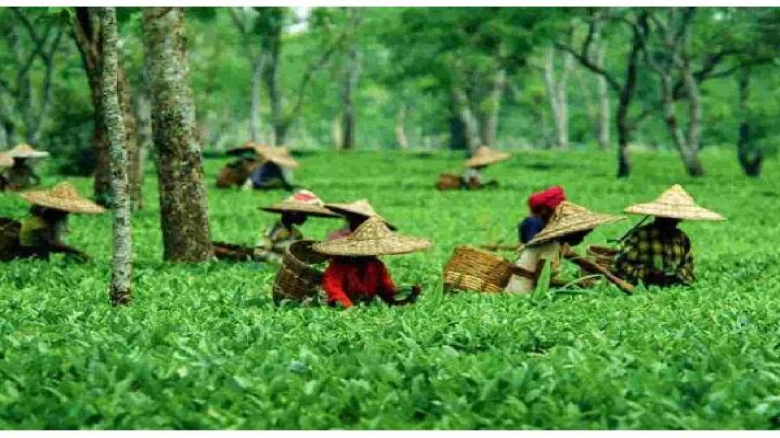National

Borkotoky said that Ilam in Nepal, along the Indo-Nepal border in North Bengal, is a major tea-producing area and India and Nepal are good neighbors and have a free trade agreement (FTA). Tea from Nepal officially and illegally enters Siliguri in north Bengal and then finds its way into Assam."
Digital Desk:
mso-bidi-font-weight:bold">
color:#0E101A">The crimson orange tea that refreshes your morning might not be
the Assam tea you think it is. Assam tea producers and planters have expressed
their concern over the unethical trade of illegally imported Nepal tea being
traded as brand Assam tea.
color:#0E101A">After affecting the sale of the geographical indication (GI)
tagged Darjeeling Orthodox tea, the illegal entry of Nepal CTC (cut-tear and
crush) into the Assam market has jeopardized the prospects of Assam tea in the
local and international markets.
color:#0E101A">According to the WTO agreement on Trade-Related Aspects of
Intellectual Property Rights (TRIPS), no other teas, let alone imported teas,
can be blended with Assam (orthodox tea), Darjeeling, Kangra, and Nilgiris
(orthodox tea) that have a GI (geographical indication) tag.
color:#0E101A">"Nepal has been producing tea recently and is contiguous to
Darjeeling tea, though separated by geographical boundaries." However, tea
production in Nepal is relatively new, and the soil is virgin. "It has
impacted the Darjeeling orthodox tea, which has an international GI
(Geographical Indication) tag," said Bidyananda Borkotoky, advisor to the
Northeast East Tea Association (NETA).
color:#0E101A">Borkotoky said that Ilam in Nepal, along the Indo-Nepal border
in North Bengal, is a major tea-producing area and India and Nepal are good
neighbors and have a free trade agreement (FTA). Tea from Nepal officially and
illegally enters Siliguri in north Bengal and then finds its way into Assam."
color:#0E101A">"The tea board has recently recovered Nepal tea from a tea
factory in Golaghat, Upper Assam. The samples have been sent for further
testing, "Borkotoky added.
color:#0E101A">As per records provided by the Panitanki Land Customs Station in
Nepal, 67,05 million kilograms of Nepal tea have been imported from the
neighbouring country from 2014 to October 2020. In addition, six samples were
tested in the laboratory between 2018 and 2020.
color:#0E101A">"Assam produces 700 million kilograms of tea
annually." So there is a surplus of 100 million kilograms of tea per year.
However, the invasion of tea from Nepal has made the demand and supply more
topsy-turvy. Moreover, the landing cost of Nepal CTC tea is somewhere between
80 to 100 rupees a kilogram, and that of orthodox tea ranges between Rs 200 to
300 per kilogram. In contrast, the landing price of Assam CTC is around Rs 180
per kilogram," Borkotoky said.
color:#0E101A">He further explained that Assam tea is passing through a rough
phase where green tea leaves that fetched 40 rupees per kilogram last year are
sold for a meager 18 rupees this year. "More than 50% of tea produced this
year is lying unsold in the warehouses this year," added the advisor to
the NETA.
color:#0E101A">Assam has around 800 big tea estates and over 1.5 lakhs small
tea growers. More than 20 lakh workers are engaged in these tea gardens
directly or indirectly.
color:#0E101A">Borkotoky said that the government needs to check these
unethical practices where Nepal tea is re-exported as Assam tea." Even 10
million kilograms of Nepalese tea entering the Assam market is enough to
jeopardize the economy of the Assam tea industry.
More than 50% of the
Assam tea produced during the April-May period has been rejected by the
packaging buyers and exporters due to this tea's high residual limit. According
to these buyers, these teas failed to conform to India's Food Safety &
Standards Authority (FSSAI).
color:#0E101A">"On August 21, 2020, the FSSAI made a draft notification
that the ranges were relaxed. However, the final notification is yet to be
released due to the pandemic, "he explained.
color:#0E101A">Borkotoky urges
CM Himanta Biswa Sarma to take up the issue with the Government of India
and get the final notification published urgently,"
Leave A Comment